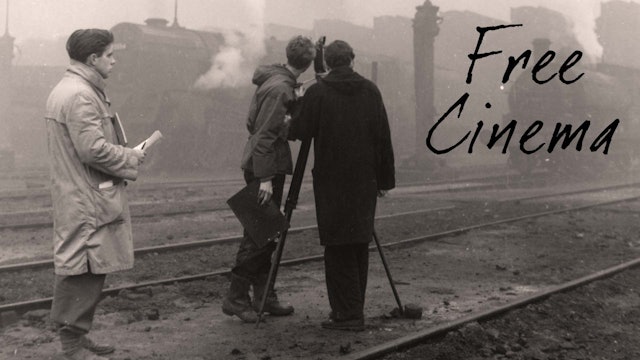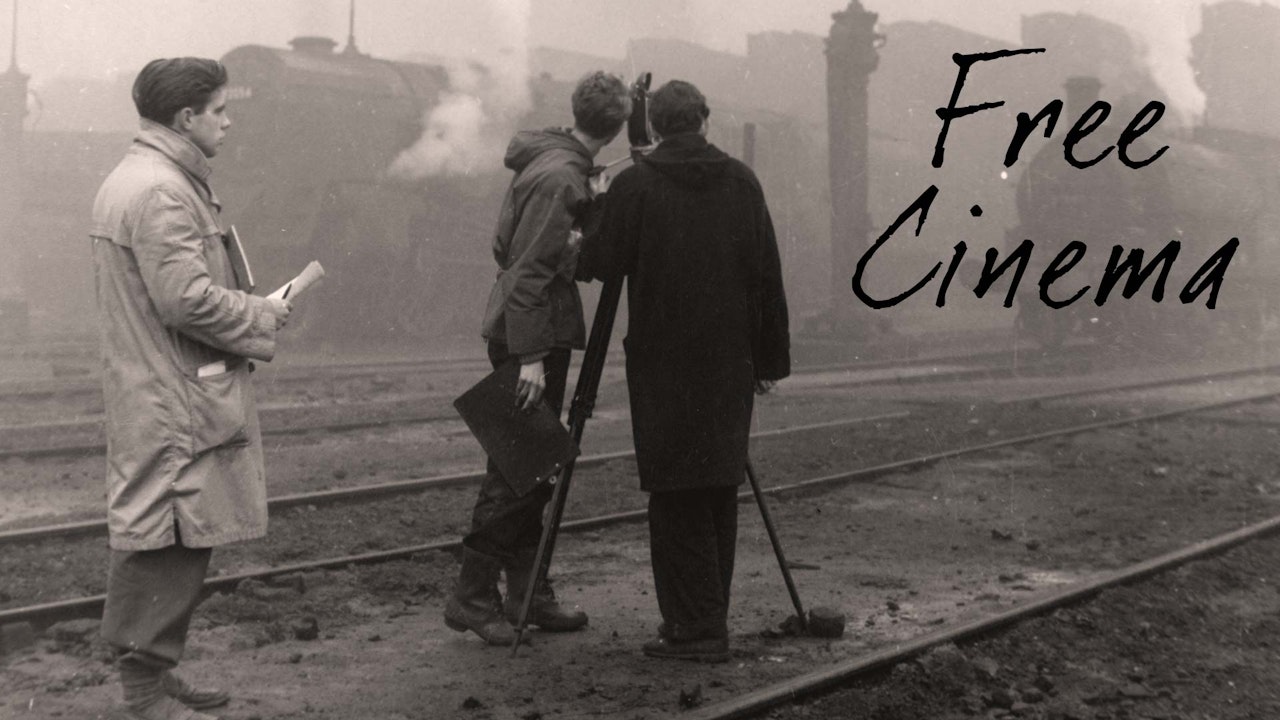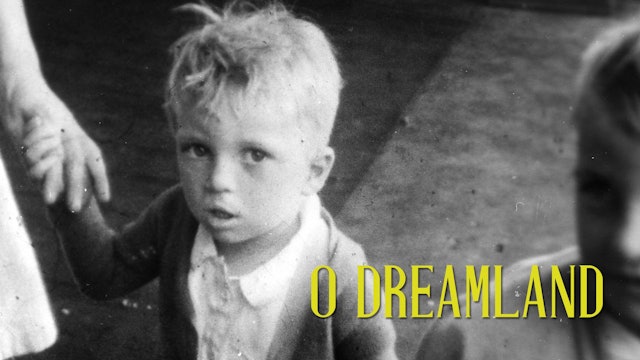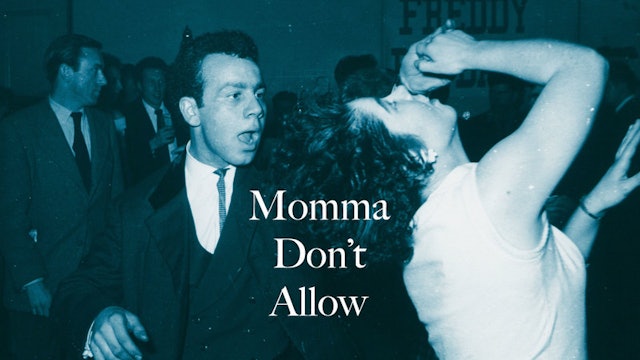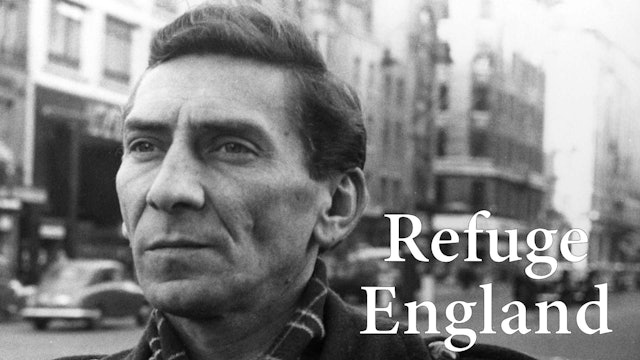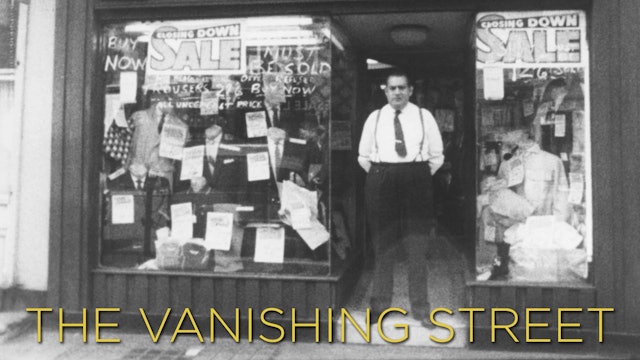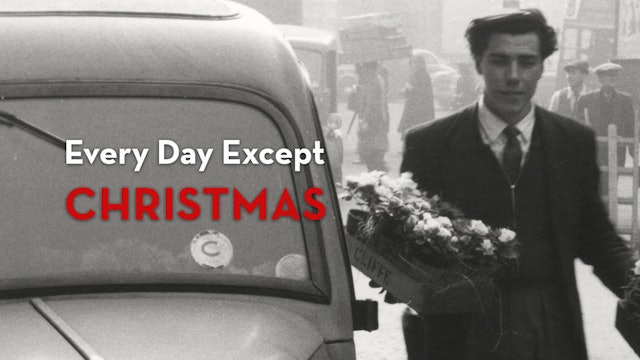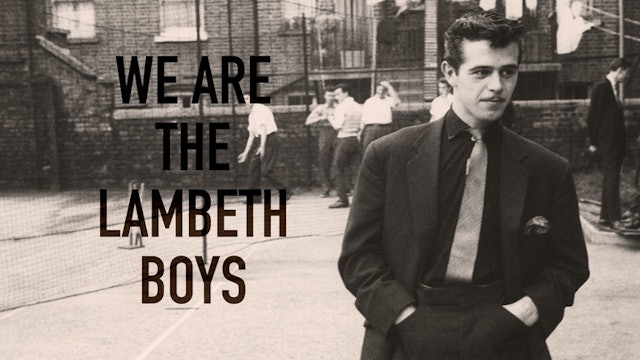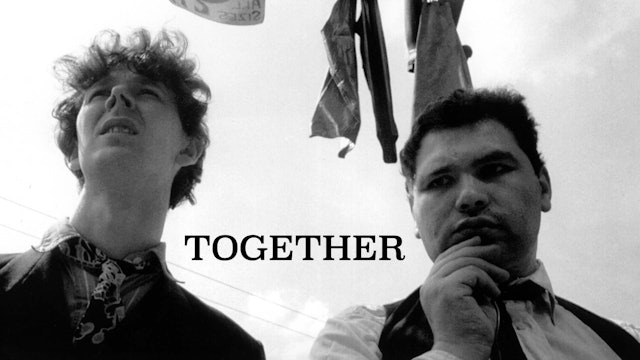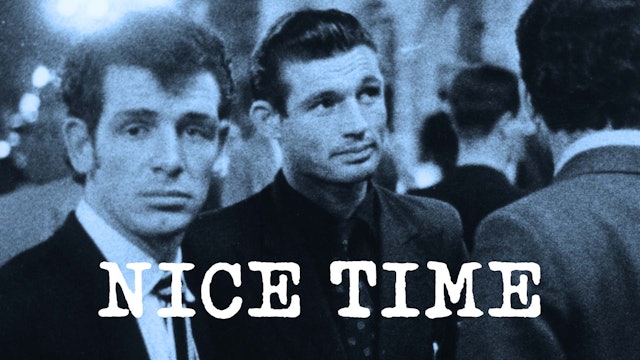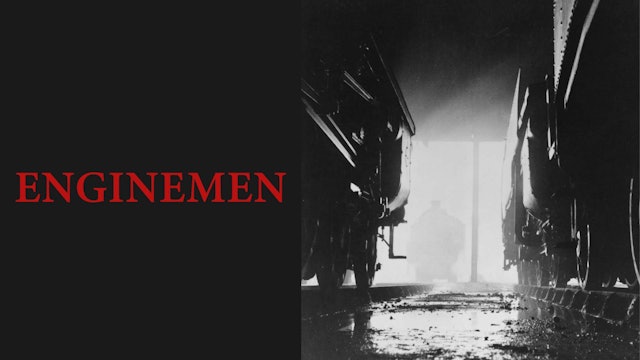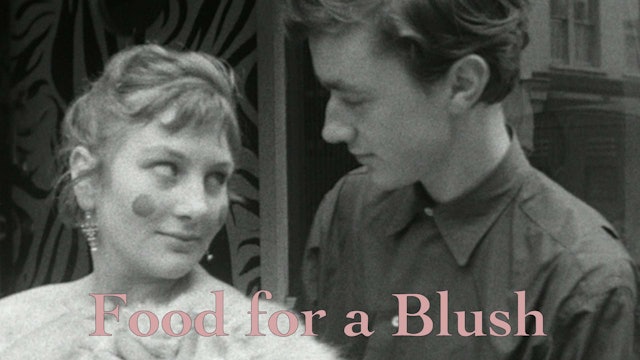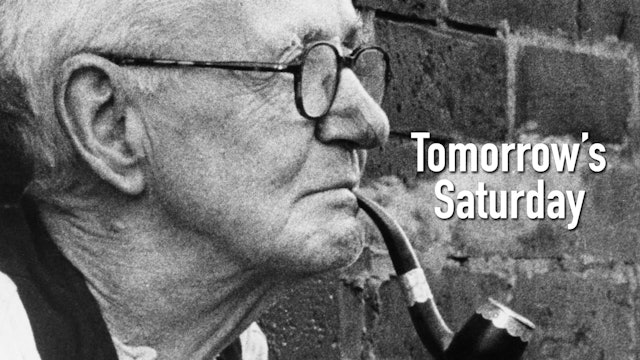Free Cinema (eleven films)
Free Cinema not only reinvented British documentary making, but this highly influential period in the country’s cinema history was the precursor for the better known British New Wave of social realist films in the late 1950s and early 1960s.
The term Free Cinema was coined by critic and filmmaker Lindsay Anderson (If…., O Lucky Man!), when he, Karel Reisz ( Saturday Night and Sunday Morning ), Tony Richardson (A Taste of Honey, The Loneliness of the Long Distance Runner ) and Lorenza Mazzetti screened a programme of their short films at the National Film Theatre on 5 February 1956.
The films were ‘free’ in the sense that they were made outside the framework of the film industry, and that their statements were entirely personal. They had in common not only the conditions of their production (shoestring budget, unpaid crew) and the equipment they employed (usually hand-held 16mm Bolex cameras), but also a style and attitude and an experimental approach to sound. Mostly funded by the BFI’s Experimental Film Fund, they featured ordinary, mostly working-class people at work and play, displaying a rare sympathy and respect, and a self-consciously poetic style.
The filmmakers once wrote:
These films were not made together; nor with the idea of showing them together. But when they came together, we felt they had an attitude in common. Implicit in this attitude is a belief in freedom, in the importance of people and the significance of the everyday.
As filmmakers we believe that
No film can be too personal.
The image speaks. Sound amplifies and comments.
Size is irrelevant. Perfection is not an aim.
An attitude means a style. A style means an attitude.
-
O Dreamland (Lindsay Anderson)
Directed by Lindsay Anderson • Documentary • 1953 • 11 minutes
Lindsay Anderson’s 12–minute tour of Margate’s Dreamland funfair is immediately notable for its deliberately bleak and unattractive photography and a spare and impressionistic soundtrack. Despite the absence of a commentary, the film...
-
Momma Don't Allow (Karl Reisz & Tony Richardson)
Directed by Karel Reisz & Tony Richardson • Documentary • With Chris Barber, Monty Sunshine, Pat Halcox, Ron Bowden • 1956 • 22 minutes
This lively Free Cinema short captures a night out at the Wood Green Jazz Club, where teenagers jive to trad jazz. Funded by the BFI Experimental Film Fund, it ...
-
Refuge England (Robert Vas)
Directed by Robert Vas • Documentary • 1959 • 27 minutes
Director Robert Vas was himself a refugee from Hungary, having arrived in London only three years earlier when he received a grant from the BFI to make the film. Despite its slightly incongruous use of voiceover, the film was adopted by th...
-
The Vanishing Street (Robert Vas)
Directed by Robert Vas • Documentary • 1962 • 20 minutes
This classic documentary by Robert Vas depicts the way of life in an east London Jewish community on Hessel Street, Whitechapel. Its back-to-back houses and small shops are about to be replaced by high-rise flats. The thriving community is...
-
Every Day Except Christmas (Lindsay Anderson)
Directed by Lindsay Anderson • Documentary • With Alun Owen • 1957 • 40 minutes
Lindsay Anderson followed his Free Cinema debut O Dreamland with this affectionate tribute to working-class life, depicting the hustle and bustle of Covent Garden market. On the back of his renowned Free Cinema film ...
-
We Are the Lambeth Boys (Karel Reisz)
Directed by Karel Reisz • Documentary • With John Rollason, Thomas Ahearne, Patrick Ahearne • 1959 • 53 minutes
Karel Reisz’s honest and sympathetic depiction of South London teens aimed to challenge the media perception of ‘Teddy Boys’, and would be one of the last films to appear under the Fre...
-
Together (Lorenza Mazzetti)
Directed by Lorenza Mazzetti • Documentary • 1956 • 52 minutes
Italian director Lorenza Mazzetti borrowed techniques from the neorealist school to conjure this striking study of East End life, one of the original Free Cinema shorts. Following the ambling existence of two deaf-mute dock workers, ...
-
Nice Time (Claude Goretta & Alain Tanner)
Directed by Claude Goretta & Alain Tanner • Documentary • 1957 • 16 minutes
The swirling neon frenzy of Piccadilly Circus has never been better captured than in this innovative short, which presents the London landmark as a bewildering collage of image and sound.
Swiss film enthusiasts and BFI ...
-
Enginemen (Michael Grigsby)
Directed by Michael Grigsby • Documentary • 1959 • 21 minutes
Produced just in time to be screened under the banner of the late–1950s ‘Free Cinema’ documentary movement, Enginemen records the life and work of engine workers in a locomotive shed just outside Manchester. At the time of British Rai...
-
Food for a Blush (Elizabeth Russell)
Directed by Elizabeth Russell • Documentary • 1959 • 29 minutes
Food for a Blush is a documentary of worry, satirising some aspects of London life.
-
Tomorrow's Saturday (Michael Grigsby)
Directed by Michael Grigsby • Documentary • 1962 • 18 minutes
Impressions of a typical Saturday at Blackburn, a milling town in the North of England.

